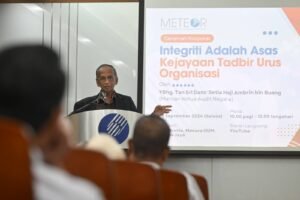The Taxpayer’s Dilemma

The taxpayer sat in their office, staring at a staggering notice from the tax authorities—a demand for RM4,116,323.97, which included an additional assessment and penalties for the Year of Assessment (YA) 2016. The figure was overwhelming, and the taxpayer knew that this was not just a financial burden but a legal storm brewing on the horizon.
The issue stemmed from the taxpayer’s disposal of a piece of land. Initially assessed under the Real Property Gains Tax Act (RPGTA), the matter took a sharp turn when an audit revealed expenses that the authorities deemed inadmissible. After negotiations, both parties reached an agreement in May 2019, with the taxpayer accepting the additional assessment of RM3,850,495.70, subject to a 10% penalty. The additional assessment was issued soon after.
Yet, despite the agreement, the taxpayer did not pay the sum. Instead, they filed a notice of appeal to challenge the additional assessment, contending that the transaction itself was far from final and fraught with complications.
The Fight Intensifies

The tax authorities wasted no time and initiated civil recovery proceedings. To their surprise, the taxpayer mounted a robust defense, raising multiple arguments. They asserted that the original transaction had undergone significant changes, causing delays and extending the completion date. How could the authorities issue an additional assessment for an unfinished transaction, they questioned?
In the High Court, the taxpayer argued that the Revenue’s actions were premature. The judge found merit in the taxpayer’s claims, ruling that the case raised triable issues. “This matter requires a full trial,” the court declared, dismissing the Revenue’s request for summary judgment.
For the taxpayer, this was a moment of hope. But for the Revenue, it was a call to escalate the battle.
The Courtroom Showdown

The Court of Appeal became the next arena. The Revenue’s legal team argued fiercely, emphasizing that Sections 103 and 106 of the Income Tax Act 1967 gave the government the right to collect taxes, even if an appeal was pending.
“This is not about the complexities of the transaction,” the Revenue’s lawyer contended. “The taxpayer agreed to the additional assessment in 2019. They cannot now evade payment by raising procedural challenges.”
The taxpayer’s counsel stood firm. “The transaction was amended multiple times. The completion date was extended. How can an assessment be valid for something that isn’t finalized? This case is premature and lacks a proper foundation.”
The tension in the courtroom was palpable. Judges pressed both sides with probing questions about the timing, the law, and the nature of the taxpayer’s appeal.
In a decisive ruling, the Court of Appeal overturned the High Court’s decision. “The issues raised by the taxpayer are matters of merit, which should be addressed before the Special Commissioners of Income Tax. The Revenue has the statutory right to recover the debt,” the lead judge declared.
The taxpayer was ordered to pay RM10,000 in costs, alongside the assessed tax.
The Lesson Learned

This case is a stark reminder of a crucial principle in taxation: tax debts must be paid, even while disputes are being resolved. The law prioritizes government revenue, placing the burden on taxpayers to contest assessments while fulfilling their payment obligations.
For taxpayers, the lesson is clear: agreements made during audits carry significant weight, and delaying payment can escalate matters into costly legal battles. For tax professionals, it highlights the importance of ensuring transactions are thoroughly documented and assessments carefully negotiated.
In the end, the case underscores a broader truth—tax law is as much about timing and strategy as it is about compliance. Being prepared and proactive can make all the difference when navigating such high-stakes disputes.






